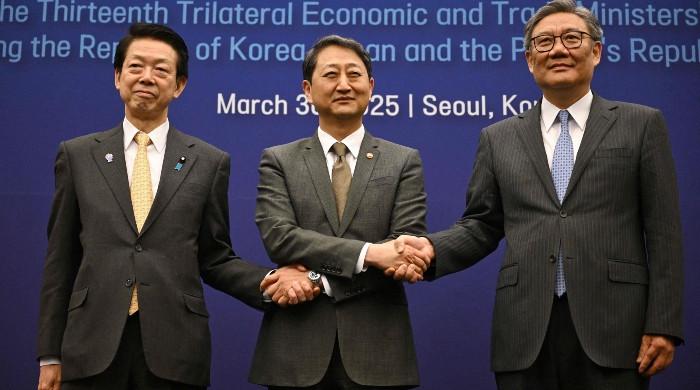Seoul: China, South Korea and Japan agreed on Sunday to strengthen free trade against a series of new tariffs imposed by the president of the United States, Donald Trump.
The agreement occurred in a meeting of senior commercial officials, the first at that level in five years, days before the start of rates in a wide variety of American imports, including cars, trucks and auto parts.
South Korea and Japan are the main automotive exporters, while China has also been affected by US tariffs.
The meeting was attended by the Minister of the South Korean industry, Ahn Duk-Geun, his Japanese counterpart Yoji Muto and Wang Wenta from China.
The three countries requested their negotiations to accelerate a comprehensive trilateral free trade agreement, and agreed to create “a predictable trade and investment environment,” said a statement.
Ahn from South Korea said that the three countries must “jointly” respond to shared global challenges.
“The current economic and commercial environment is marked by the increase in the fragmentation of the global economy,” he said.
“The international environment that surrounds us is constantly changing, and uncertainties are increasing,” said Japanese trade official Yasuji Komiyama at a press conference.
Chinese official Wang Liping said that “unilateralism and protectionism are being disseminated” and that the three countries must assume responsibility for safeguarding the multilateral trade system.
The three countries represent 20% of the world’s population, 24% of the global economy and 19% of world merchandise trade, he said.
Trump has promised tariffs adapted to each commercial partner since April 2 to remedy the practices he considers unfair.
But he also told reporters last week that there would be “flexibility”, and the markets seemed to react with some relief at the end of last week.




